Isolated from human gastric juice
Good for both “stomach” and “intestine”
Lactic acid bacterium LJ88
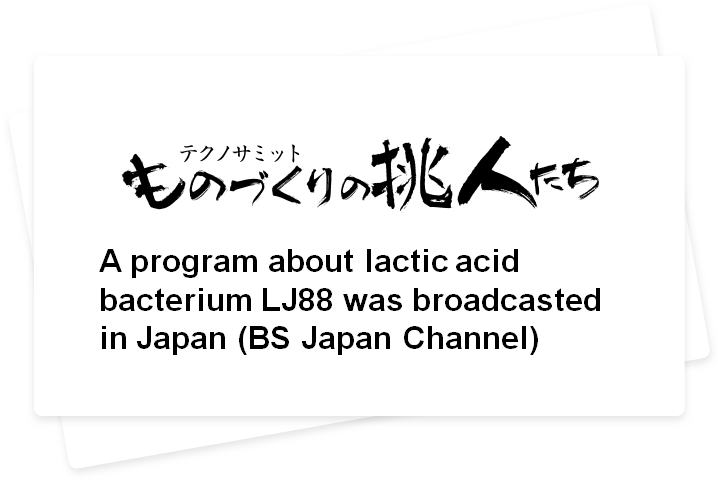

- Patented in:
Japan (JP5075254)
USA (US9243300)
South Korea (KR101061143, KR101451188)
Presented by “LAB LJ88 Laboratory”
A recently found innovative strain of lactic acid bacterium LJ88
We think that many people take lactic acid bacteria from yogurt and/or fermented milk for benefits to their health. As you may know, these bacteria are considered to be partners to support for our healthy life. But actually, there are many different types of lactic acid bacteria. Although such bacteria that improve the intestinal environment are well known, LJ88 (Lactobacillus johnsonii No.1088) is a newly found one that is also good for the stomach. Here we would like to describe more about its unique properties.
- 1.LJ88 suppresses hyperacidity, which causes stomachache, heartburn, and heavy stomach feelings
- Do you have experiences of “stomachache,” “heartburn,” or “heavy stomach feelings” after overeating and/or suffering from stress? These symptoms might be a sign that the production of your gastric acid is not well controlled.
- Not only overproduction but also underproduction of gastric acid is of concern. The production of gastric acid is controlled by a hormone named “gastrin,” which stimulates the secretion of gastric acid in the stomach. LJ88 affects the gastrin-producing cells in the stomach to prevent overproduction of gastric acid. However, LJ88 does not suppress the production of gastric acid more than is necessary.
-
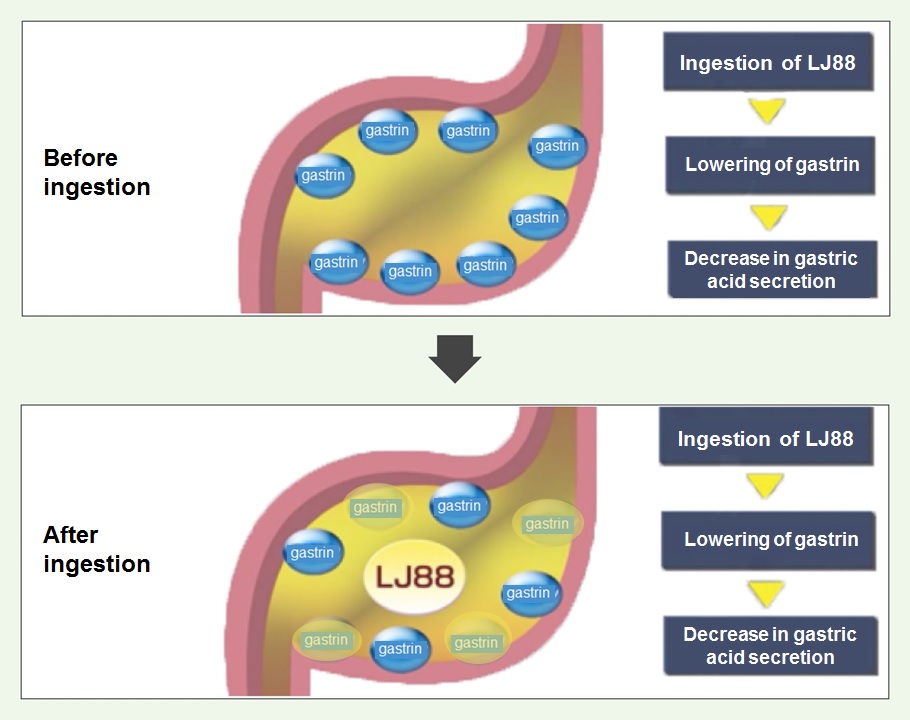 (Ref.15: 食品と開発 51 (9), 71-73, 2016)
(Ref.15: 食品と開発 51 (9), 71-73, 2016)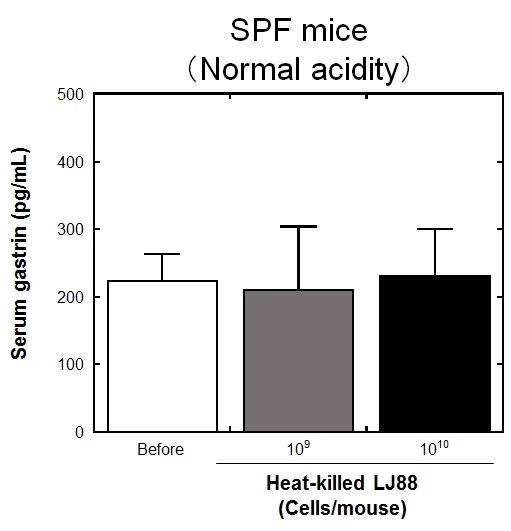
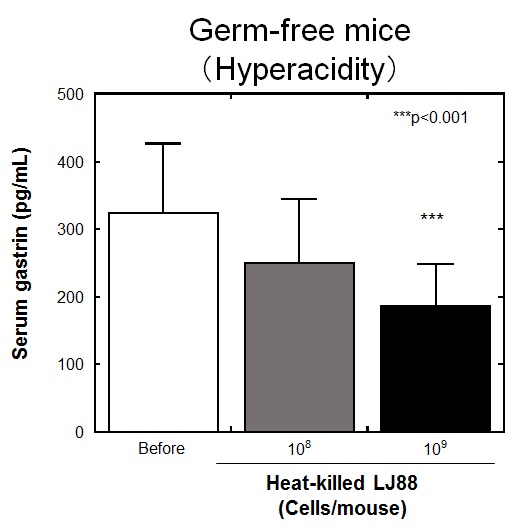
- 2.Lactic acid bacterium LJ88 combats against Helicobacter pylori
-
You might notice that Helicobacter pylori (H. pylori) has been a topic of discussion on TV programs recently. H. pylori is a crucial cause of stomach cancer, and also it causes stomachache and heavy stomach feelings. Lactic acid bacterium LJ88 can weaken such adverse effects of H. pylori. According to the results of in vitro experiments in which LJ88 and H. pylori were mixed and cultured, LJ88 suppressed the growth of H. pylori.
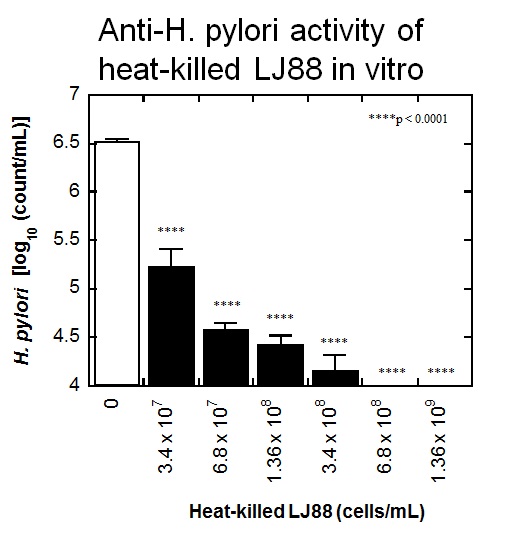
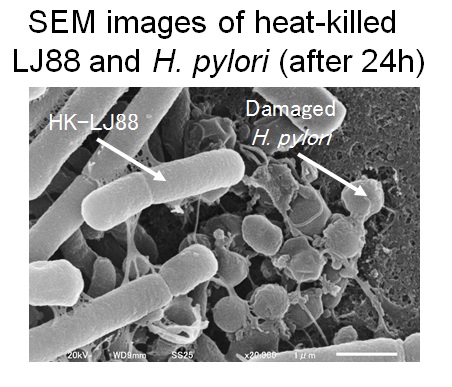
- (Ref.11: New Food Industry 59 (7), 1-8, 2017)(Ref.12: FEMS Microbiol Lett 364 (11), fnx102
-
It was also found that the number of H. pylori that had been infected in the stomach of mice was decreased by the oral administration of LJ88.(Ref.18: MicrobiologyOpen 4, 465-474, 2015)
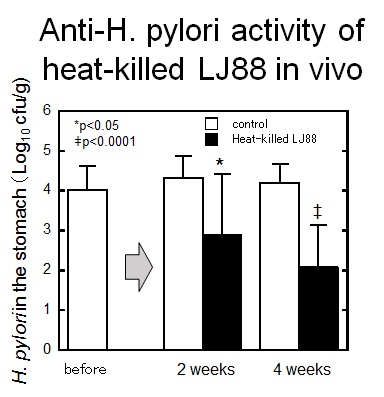
How was lactic acid bacterium LJ88 found?
A backstage story of LJ88 research
Lactic acid bacteria could be isolated from the stomach
LJ88 returning home to its origin
A unique lactic acid bacterium isolated from the human stomach
LJ88 is effective both living and non-living
- 1. Suppression of overproduction of gastric acid
- 2. Inhibition of H. pylori activity
- 3. Augmentation of the populations of so-called beneficial intestinal bacteria
LJ88 is also beneficial to the intestines, as expected for lactic acid bacteria
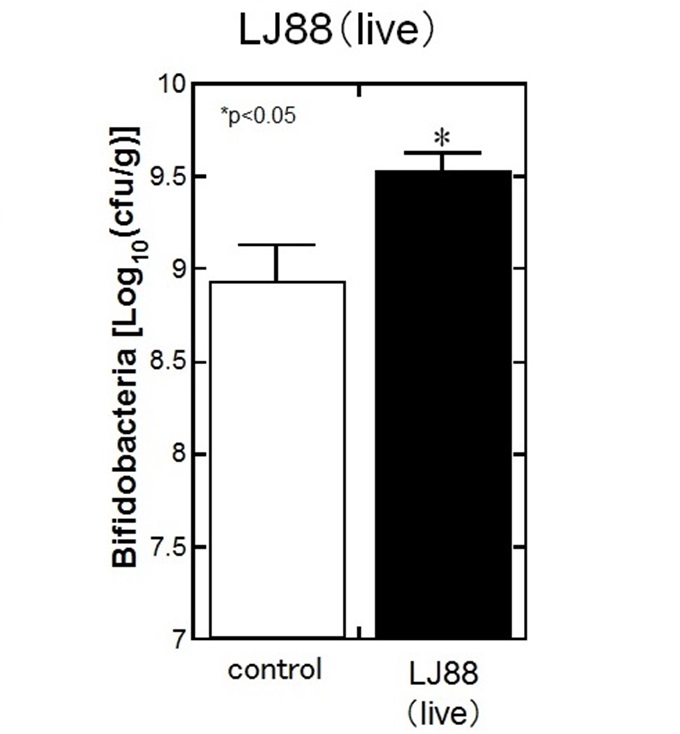
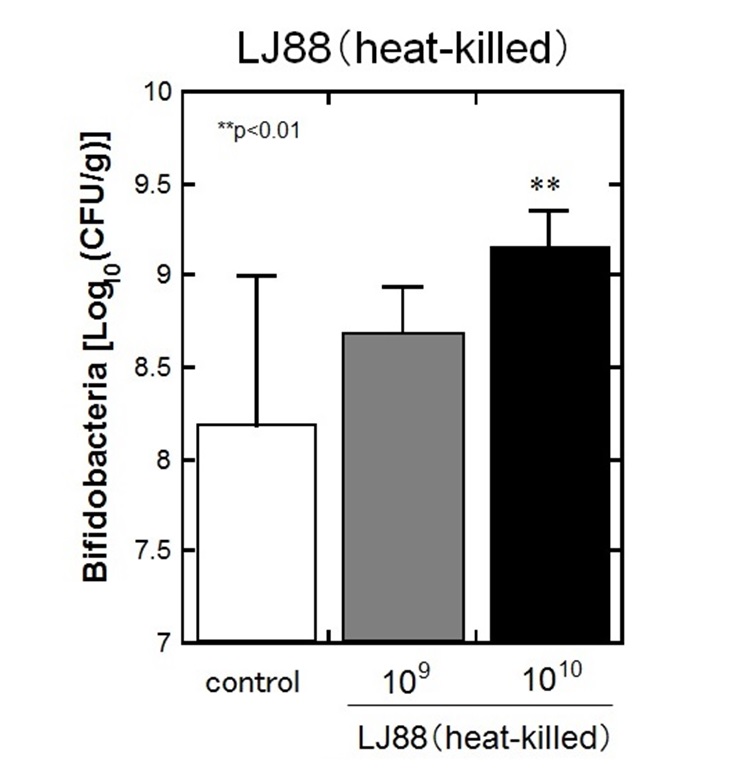
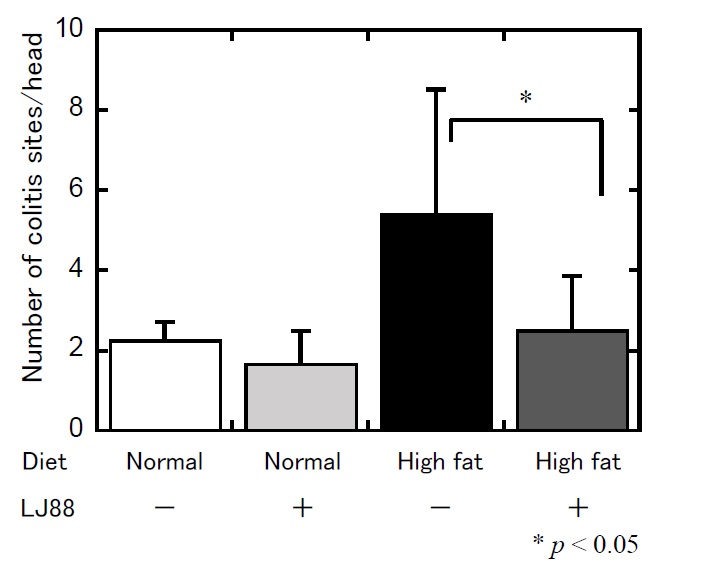
(Ref.10:腸内細菌の応用と市場, シーエムシー出版, p.36-47, 2018)
Effect of LJ88 on other bacteria is specific
(Effect of heat-killed LJ88 on the growth of E. coli)
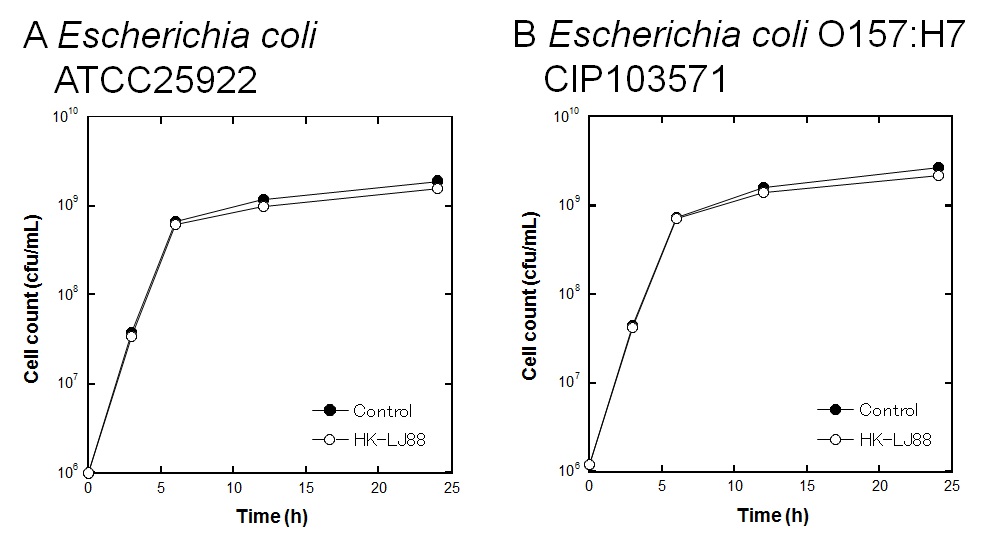
(Ref.9: 腸内細菌叢を標的にした医薬品と保健機能食品の開発, 技術情報協会, p.411-420, 2018)
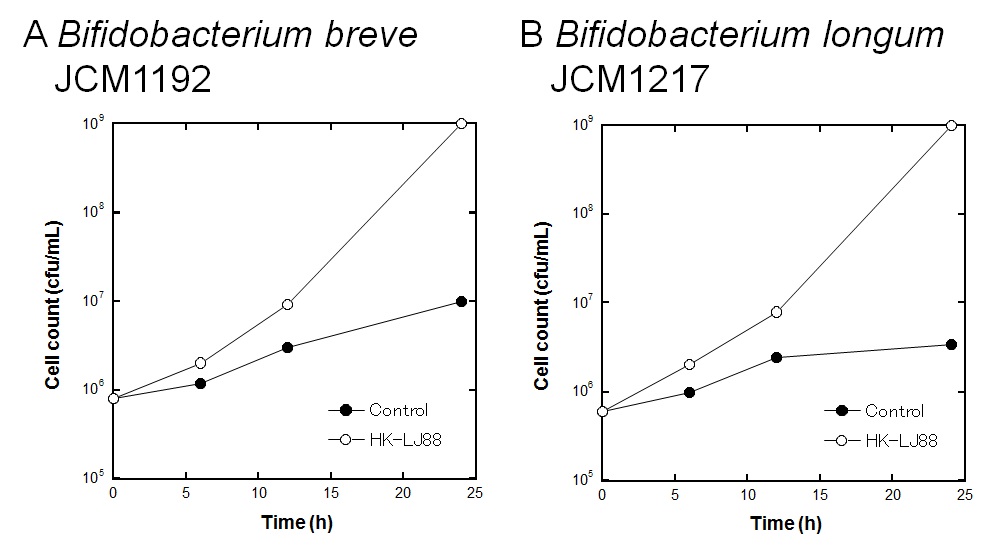
(Ref.9: 腸内細菌叢を標的にした医薬品と保健機能食品の開発, 技術情報協会, p.411-420, 2018)
LJ88 is effective clinically as well
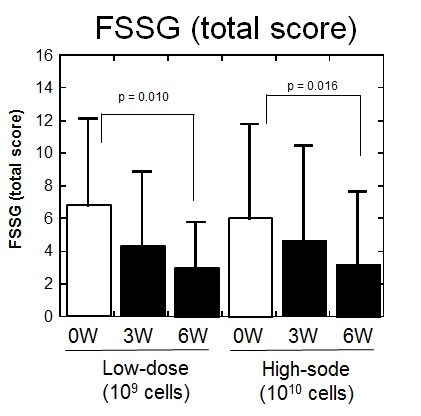
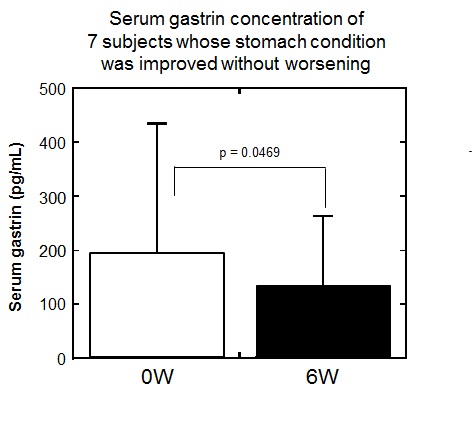
(Ref.3&4)
In a randomized, placebo-controlled, double-blind, parallel-group study, 120 healthy human volunteers were given heat-killed LJ88 (1 billion cells/day) or placebo once a day for 6 weeks. It was confirmed that heartburn symptoms were improved by taking heat-killed LJ88.
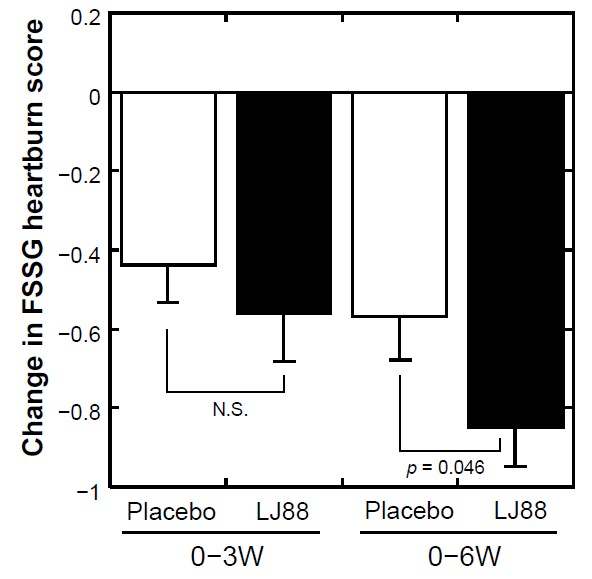
LJ88 can be applied to bread and cooked rice
Therefore, one can easily take LJ88 after mixing it with foods or beverages, even in the case of difficulty in directly taking powdery lactic-acid bacteria products. Since LJ88 has no specific taste, it does not interfere with the taste of foods.
As LJ88 is effective even after heating, rendering it non-living, this lactic acid bacterium is quite versatile, with applications to many kinds of food.
